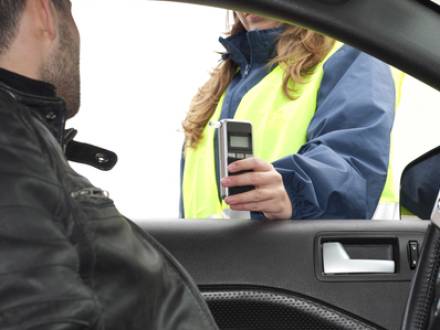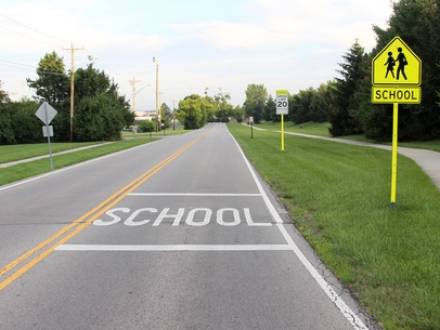Recent Blog Posts
Will You Qualify for an Illinois Hardship License After a DUI?
 While little hard data exists, it is estimated that more than 11 million people in the U.S. have had to deal with a driver’s license suspension. While many of these suspensions are for DUI convictions, others are due to debt-based reasons, such as failure to pay traffic fines or court fees. Driver’s license suspensions can also result from a failure to pay child support or a failure to appear in court.
While little hard data exists, it is estimated that more than 11 million people in the U.S. have had to deal with a driver’s license suspension. While many of these suspensions are for DUI convictions, others are due to debt-based reasons, such as failure to pay traffic fines or court fees. Driver’s license suspensions can also result from a failure to pay child support or a failure to appear in court.
In some cases, drivers can benefit from a hardship license or another form of restricted driver’s license. Driver’s license suspensions disproportionately affect those with lower socioeconomic status and people of color and can directly affect a person’s ability to work, receive health care, attend school, and handle other essential life issues. The ability to drive provides freedom and flexibility to commute, maintain social and professional connections, and manage necessary errands.
Lawmakers Attempt to Make Youth Sentencing Reforms Retroactive
 Although Illinois banned life sentences for juvenile offenders under the age of 21 in 2023 (Public Law 102-1128), the law was not made retroactive. A bill to ensure that juvenile offenders who are already serving life sentences receive the same consideration stalled last session. While lawmakers tried again this year, the bill failed on a 49-51 vote on April 11.
Although Illinois banned life sentences for juvenile offenders under the age of 21 in 2023 (Public Law 102-1128), the law was not made retroactive. A bill to ensure that juvenile offenders who are already serving life sentences receive the same consideration stalled last session. While lawmakers tried again this year, the bill failed on a 49-51 vote on April 11.
A young man who was with his cousin in 1998 when the cousin robbed a store and killed two people – and who has consistently claimed he had no idea what his cousin planned – is currently serving a life sentence under the "accountability theory." The young man had no weapon, physically killed no one, and his cousin confessed to the murders.
Can I Legally Turn Around at an Illinois DUI Checkpoint?
 Perhaps you have been to an after-work party to celebrate the retirement of one of your co-workers. You have an enjoyable time and leave the party to drive home, confident that you are not impaired because you only had a couple of beers. Then, on your way home, you realize that there is a DUI checkpoint up ahead.
Perhaps you have been to an after-work party to celebrate the retirement of one of your co-workers. You have an enjoyable time and leave the party to drive home, confident that you are not impaired because you only had a couple of beers. Then, on your way home, you realize that there is a DUI checkpoint up ahead.
You weigh your options – the slightest chance that you might test above the 0.08 percent BAC, against looking for a place to turn around and finding a different way home. Or, perhaps you do not even realize there is a DUI roadblock until you are there, with no way to turn around. If you are facing DUI charges, it is extremely important that you speak to an experienced Grundy County, IL DUI lawyer.
What Are the Requirements for Legal Sobriety Checkpoints?
Under Illinois Statute, sobriety checkpoints are only legal when they are conducted in a non-arbitrary and systematic manner. The police must have a plan for stopping vehicles, which avoids the appearance of choosing only cars where the driver, at a mere glance, seems impaired. Often, the police will choose to stop every fourth vehicle or something similar.
Driver’s License Suspensions for Missed Court Dates Ending
 As of January 1, 2025, residents of Illinois will no longer have their driver’s licenses suspended as a result of failure to appear in court for minor traffic violations. It is easy to be so busy that you forget to appear in court for running a stop sign. Before this new bill, a warrant would be issued, your driver’s license would be suspended, and what began as a relatively minor issue could quickly snowball into a huge mess that haunted you for months or even years.
As of January 1, 2025, residents of Illinois will no longer have their driver’s licenses suspended as a result of failure to appear in court for minor traffic violations. It is easy to be so busy that you forget to appear in court for running a stop sign. Before this new bill, a warrant would be issued, your driver’s license would be suspended, and what began as a relatively minor issue could quickly snowball into a huge mess that haunted you for months or even years.
New fines and fees would be assessed, and you could receive a ticket for driving on a suspended license – even if you were unaware your license was suspended. The end result was unjust penalties that disproportionately harmed low-income residents. Governor JB Pritzker signed HB277 into law, ensuring that the state no longer imposes a severe penalty for minor infractions that have previously cost individuals their jobs.
Could You Be Eligible for a Deferred Prosecution Agreement?
 After being arrested for a criminal offense in Illinois, you may wonder if you are eligible for a deferred prosecution agreement. These programs offer non-violent or first-time offenders a way to avoid a criminal conviction and the associated consequences. Rather than go through the incredible stress of a trial, wondering whether you will soon be behind bars, you are allowed to complete detailed conditions and requirements through the program.
After being arrested for a criminal offense in Illinois, you may wonder if you are eligible for a deferred prosecution agreement. These programs offer non-violent or first-time offenders a way to avoid a criminal conviction and the associated consequences. Rather than go through the incredible stress of a trial, wondering whether you will soon be behind bars, you are allowed to complete detailed conditions and requirements through the program.
Once the program is successfully completed, your charges could be dismissed, leaving you without a criminal record. If you believe you might be eligible for an Illinois deferred prosecution agreement, speaking to an experienced Grundy County, IL criminal defense lawyer can be a positive step forward. Your attorney can help you determine whether you are eligible and, if so, guide you through the process.
Five Crimes You Might Be Charged with if You Join a Gang
 Joining a gang might seem like a way to find support, protection, or a sense of belonging, but it often leads to serious legal trouble. Many gang members face criminal charges — even if they did not directly commit a crime themselves. In Illinois, police and prosecutors take gang-related crimes very seriously, and a conviction can result in heavy fines, jail time, or a permanent criminal record.
Joining a gang might seem like a way to find support, protection, or a sense of belonging, but it often leads to serious legal trouble. Many gang members face criminal charges — even if they did not directly commit a crime themselves. In Illinois, police and prosecutors take gang-related crimes very seriously, and a conviction can result in heavy fines, jail time, or a permanent criminal record.
At the Law Offices of Jack L. Zaremba, P.C., our Illinois criminal defense attorney works with clients in Will County, Grundy County, and the surrounding areas who are facing criminal charges of any kind. If you or someone you love has been arrested, it is important to understand your legal options. The sooner you speak with an experienced criminal defense attorney, the better your chances of protecting your future.
Gun Crimes
Many gang-related arrests involve firearms. If you are caught carrying a gun without a license, you can be charged with unlawful use of a weapon (UUW). If a gun is used during a crime — even if you were not the one holding it — you could face felony weapons charges. Illinois has some of the strictest gun laws in the country, and a conviction can lead to prison time and a permanent criminal record.
Do I Need a Lawyer for a Serious CDL Violation?
 As a commercial driver’s license (CDL) holder, you are held to a higher standard than other drivers when it comes to traffic violations. If you are caught driving dangerously, the penalties can be severe. A conviction can put your CDL, job, and future earnings at risk.
As a commercial driver’s license (CDL) holder, you are held to a higher standard than other drivers when it comes to traffic violations. If you are caught driving dangerously, the penalties can be severe. A conviction can put your CDL, job, and future earnings at risk.
If you have received a serious traffic violation ticket, it is important to understand your legal options. Fighting the ticket with the help of an experienced Illinois CDL violation defense attorney could save your license and protect your career.
What Are Serious Violations for CDL Drivers?
Serious violations for CDL drivers are traffic offenses that can result in license disqualification, even if they occur while driving a personal vehicle. Illinois follows federal guidelines for CDL regulations, meaning that accumulating serious violations within a short period can lead to temporary or permanent disqualification.
DUI in a School Zone Information for Parents
 In Illinois, school zones are specially protected areas. Crimes committed on or near school campuses are taken very seriously and punished more harshly. The goal behind sentencing and charging enhancements for certain crimes that occur in school zones is to protect students. There is no doubt that it is unsafe for children to encounter intoxicated drivers while they are entering or leaving their schools. The increased traffic, impatience of other drivers, and sometimes confusing traffic patterns during pick-up and drop-off times all make it even more likely that a drunk driver will cause a traffic accident. The presence and unpredictability of children make it sadly more likely that a child could be injured by an impaired driver in a school zone.
In Illinois, school zones are specially protected areas. Crimes committed on or near school campuses are taken very seriously and punished more harshly. The goal behind sentencing and charging enhancements for certain crimes that occur in school zones is to protect students. There is no doubt that it is unsafe for children to encounter intoxicated drivers while they are entering or leaving their schools. The increased traffic, impatience of other drivers, and sometimes confusing traffic patterns during pick-up and drop-off times all make it even more likely that a drunk driver will cause a traffic accident. The presence and unpredictability of children make it sadly more likely that a child could be injured by an impaired driver in a school zone.
DUI with bodily injury in a school zone is an automatic felony charge in Illinois. If you are facing this extremely serious accusation, you need a highly experienced Joliet, IL aggravated DUI attorney. Courts can be very harsh in their treatment of DUI offenders who have endangered students in a school zone.
Why Was I Charged with Resisting Arrest?
 Getting arrested can be shocking. When you are being deprived of your freedom and forcibly placed in handcuffs, your instinct might be to resist, especially if you did not commit the crime you are being arrested for. While pulling away or trying to defend yourself in response to having force used against you may simply be an instinctual response, doing so might mean getting charged with the crime of resisting arrest. Even if you are cleared of the charges you were originally arrested for, you might still be convicted of resisting arrest. Resisting arrest is normally a misdemeanor, but can be charged as a felony if a law enforcement officer was injured as a result. An experienced Joliet, IL defense attorney can help you fight back against all of the charges you are facing.
Getting arrested can be shocking. When you are being deprived of your freedom and forcibly placed in handcuffs, your instinct might be to resist, especially if you did not commit the crime you are being arrested for. While pulling away or trying to defend yourself in response to having force used against you may simply be an instinctual response, doing so might mean getting charged with the crime of resisting arrest. Even if you are cleared of the charges you were originally arrested for, you might still be convicted of resisting arrest. Resisting arrest is normally a misdemeanor, but can be charged as a felony if a law enforcement officer was injured as a result. An experienced Joliet, IL defense attorney can help you fight back against all of the charges you are facing.
Understanding Resisting Arrest Charges
When a police officer tells you that you are under arrest, doing almost anything except readily complying can lead to resisting arrest charges. Something as simple as pulling your arm away when the officer tried to handcuff you or taking a step back when he moved to grab you might be construed as resisting arrest. You do not need to have genuinely tried to escape or assaulted the officer to be convicted.
What Can I Do if My Child Was Arrested at School?
 Heightened police presence in schools and harsh zero-tolerance policies have led to a drastic increase in the number of juveniles who get arrested at school. Behaviors that used to result in no more than being suspended from school are now getting children handcuffed and charged with criminal offenses. Things like getting into a fight with a classmate, hiding a small amount of marijuana in a locker or making fun of another student online used to be treated as disciplinary issues for the school administration and the student’s parents to handle together. Now, these same rule-breaking behaviors are more likely to get a student arrested than suspended. If your child was arrested in school, you need an experienced Will County, IL juvenile crimes attorney. It is best to contact a lawyer as soon as you learn that your child has been taken into police custody. An attorney can act quickly to protect your child’s rights.
Heightened police presence in schools and harsh zero-tolerance policies have led to a drastic increase in the number of juveniles who get arrested at school. Behaviors that used to result in no more than being suspended from school are now getting children handcuffed and charged with criminal offenses. Things like getting into a fight with a classmate, hiding a small amount of marijuana in a locker or making fun of another student online used to be treated as disciplinary issues for the school administration and the student’s parents to handle together. Now, these same rule-breaking behaviors are more likely to get a student arrested than suspended. If your child was arrested in school, you need an experienced Will County, IL juvenile crimes attorney. It is best to contact a lawyer as soon as you learn that your child has been taken into police custody. An attorney can act quickly to protect your child’s rights.

















